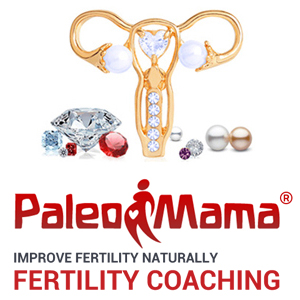Slightly elevated prolactin? Three natural ways to lower it

Elevated prolactin may have a negative impact on egg quality. Image courtesy interphasesolutions at FreeDigitalPhotos.net
One common finding among women with fertility issues is elevated prolactin. How does prolactin affect fertility?
Elevated prolactin can be caused by a number of things, such as medications, long-term stress, lack of sleep (or even having sexual intercourse just before the blood check).
There are frequent mentions in the medical literature (like in the study here) of elevated or high prolactin in association with polycystic ovarian syndrome as well as endometriosis, but a clear link has not been established yet.
A normal prolactin level is less than 500 mIU/L (20 ng/mL). Very high prolactin is anything beyond 5,000 mIU/L (>200 µg/L) and needs to be medically treated.
But what about values in-between? Such as slightly elevated prolactin between 500–2000 mIU, which is common in women who have difficulties getting pregnant?
The thing is, high prolactin can lower FSH levels needed to trigger egg maturation processes, meaning it can prevent ovulation from occurring and cause infertility.
Another problem—less obvious but possibly more serious—is that slightly elevated prolactin may negatively affect egg quality.
How to lower high prolactin levels naturally?
So how can this be prevented and what can you do from your side to lower prolactin levels elevated by a stressful lifestyle?
Basically, there are two things which really work:
Vitex (Agnus-Castus) and fertility
1. Take Vitex (Agnus-Castus) for reducing prolactin levels
The most effective herb at lowering prolactin levels is the chastetree berry (also known as Vitex Agnus Castus, like this one here).
Its extract has proven hormone balancing effects and it’s been around forever. In ancient Greece, women used this plant to treat menstrual disorders. However, Vitex must be taken over the course of at least 2–5 months to see the effects. You should take it continuously throughout the cycle because its effects are not strong and get “washed out” quite quickly.
Diet and supplements for high prolactin levels
2. Diet and supplements
Eating a whole food diet or, even better, a Mediterranean diet will help keep prolactin levels low long-term. In my previous articles on Mediterranean diet, you can read which diet is proven to help shorten time to conception and why. Consider eating more foods that contain vitamin B6 (or simply take a supplement like this one for example).
Zinc: An Inhibitor of Prolactin (PRL)
According to several studies, zinc supplementation can decrease prolactin levels, too.
It must be realized that people who design clinical studies are seldom interested in testing supplements or compounds freely available on the market and patent-free. However, I found this old study from in which increasing doses of zinc were given to normal adult men and women. The results showed prolactin levels significantly decreased in all subjects in response to zinc supplementation.
If you want to change your diet to support low prolactin, then you may want to know that foods high in B6 and zinc include potatoes, bananas, wild salmon, shellfish, beef, and beans. However, if I were again trying to get pregnant at 35 plus, then I would take supplements in addition to the diet.
One more word about zinc: Women who are already pregnant as well as women who are breastfeeding require about 15 milligrams of zinc daily. For those who are trying to conceive, zinc can be consumed as a supplement at a dosage such as those tested in the linked study (50 milligrams a day).
Would you like to know my opinon on your fertility journey? Please send me an e-mail and we’ll set up a Skype-consultation at a time that works best for you!
Vitamins and fertility: how much vitamin E to lower prolactin
3. There are articles on the Internet related to the ability of the antioxidants S-adenosyl-methionine (SAM) and vitamin E to lower prolactin levels. While I could find some that supported the use of SAM for lowering prolactin (once tested in depressed patients), I wasn’t able to find much scientific support for either of these compounds in women with fertility issues. Still, if you decide you would like to try, it is recommended to take 300–400 IU of vitamin E per day. Recommended dosage for lowering prolactin with SAM is 400–1200 mg per day.
Good luck, see you next week!
Darja







